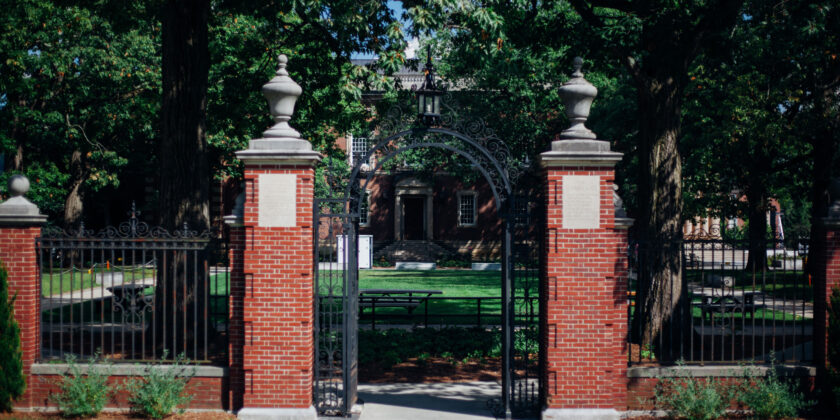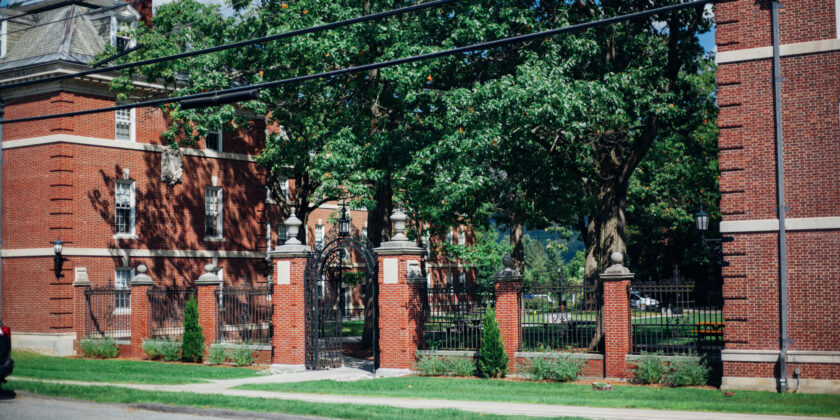
Common Application Refresh Starts Today, 7/27, at 5pm Eastern
Application refresh dates. The system refresh begins this afternoon (July 27), which will conclude the 2022-2023 application season. The first-year application will close to applicants and recommenders at 5 pm ET on July 27, 2023. The transfer application will close to applicants and recommenders at 5 pm ET on July 28, 2023.
Account rollover. You can roll over your account on August 1. For more details about how account rollover works, reference the Solutions Center for frequently asked questions and tips in the application guide for first-year and transfer students.
*Stay in the know! Subscribe*

Common Application Rollover
Each year on August 1, Common App launches a refreshed application, including any new questions and new colleges. Students will need to sign in and refresh their Common App accounts for the new cycle.
For more details about how account rollover works, reference our Solutions Center for frequently asked questions and tips in our application guide for first-year and transfer students.
Application refresh dates. Mark your calendars for our system refresh dates, which will conclude the 2022-2023 application season.
-
- The first-year application will close to applicants and recommenders at 5 pm ET on July 27, 2023.
*Stay in the know! Subscribe*

10 Do’s and Don’ts for Writing The Common Application Essay
Our essay experts know best. Check out these 10 tips from Emma that will help you write the most effective personal statement.
Interested in completing your college essays this summer? Summer is the best time to tackle this important essay, so start coming up with a plan now! Contact us.
- Don’t worry about the prompts. It’s helpful to read through the prompts to see if doing so sparks any ideas; however, there is no need to stress about writing an essay that exactly “answers” a prompt. Your goal is to write the best essay you can about whatever you decide is best to write about. Working with students 1:1, we totally disregard the prompts and usually find that their essay still easily fits under one of the questions. And, if not, there is often an open-ended prompt such as: “Share an essay on any topic of your choice. It can be one you’ve already written, one that responds to a different prompt, or one of your own design.”
- Do open with a scene. A strong opening scene draws the reader into your essay. Admissions officers and their first-round readers have hundreds of applications to get through—make yours stand out from the first sentence. Intrigue them or scare them or make them laugh. Make them want to keep reading.
- Do focus on a single story. You only have 650 words. Perhaps that sounds like a lot to you: it’s not. There is no reason you should worry about filling it up. Through our process, you will find out how to generate enough detail to write an essay about any story. Nor should you worry about cramming as much as possible into the personal statement. Remember that colleges have all of your application data and that trying to do too much in the essay will only end up making your essay feel rushed and scattered.
- Do make sure that your story has a clear beginning, middle, and end. You can tell your story out of order—for instance, opening with a scene from a stressful moment in order to build suspense before jumping back into chronology—but you always want to make sure your story has each of these elements. Skipping any single one will confuse your reader and make your story feel incomplete (because it is!).
- And yet don’t get bogged down in detail. We usually find students have trouble generating enough detail. But sometimes we get a student who is unable to summarize effectively, too. Having too much detail can make your story confusing and also mean that your reader will have trouble understanding what the most significant elements are. It usually also means you don’t have room for reflection—the most important element in the essay!
- Do present yourself in a positive light. We actively encourage you to tell a story that showcases your vulnerabilities, failures, weaknesses, and mistakes. However, either your narrative or your reflection (or some combination of the two), needs to ultimately redeem you so that your essay, in the end, shows you to be someone who is actively working to improve—to rectify mistakes, move past failures, or strengthen weakness. Your essay should be honest, but its main purpose is to make you seem like someone admissions officers want to see at their colleges! Make sure you come off well.
- Don’t use huge thesaurus words. Again: you aren’t trying to impress the admissions officers! You are trying to show them who you are—and you are trying to make them like you. Using big words can mean using words you don’t quite know how to use, and that will show. Even if you do know how to use them, unless your essay is about how much you love long words or languages, using the big, 25-cent words can make you sound pretentious and overly formal. The language should sound like you and be relatively casual—not curse-word, talking-with-friends casual, but maybe talking-with-your-grandmother casual.
- Do use vivid, interesting words and varied sentence structure. Being casual doesn’t mean the writing shouldn’t be good or interesting! Do push yourself to use words you might not use in your everyday speech, and do mix up the sentence structure to keep the writing varied and exciting. Do feel free to include words from your personal vocabulary—words from the language you speak at home or from a regional dialect or words you’ve made up. That can add a lot of texture and personality to an essay. Just make sure you define the words for your reader if the meaning isn’t clear from context.
- But don’t use emotional language: I was happy; I was sad. Instead, let an action depict the emotional state. That is, instead of saying “I was happy,” you might write, “I couldn’t help skipping a few steps down the street after hearing the news.” And, instead of saying “She was sad,” you might write, “Her shoulders slumped, and she cradled her head in her hands.” You can’t see an emotion, and you always want to give the reader something to see.
- And don’t use cliche—i.e. common, predictable, overused—language. Cliche language includes (but is definitely not limited to!) phrases like:
- I need to be true to myself.
- Time heals all wounds.
- Every cloud has a silver lining.
- Good things come to those who wait.
- I learned more from them than they did from me.
- Every rose has its thorn.
- You win some, you lose some.
- Little did I know.
Of course, your essay might have one of these messages at its heart. Maybe you did learn more from the kid you tutored than they learned from you. Maybe you did find the “silver lining” in a terrible situation. Both of these could make for great essays. But you want to verbalize that realization in your own unique and surprising way.
*Stay in the know! Subscribe*

Common Application ‘How To’ Videos via AXS Companion

High School Students: Use Your Summers Wisely
Rising Seniors
Time flies, right? Hopefully, you’ve planned something interesting to explore your academic interests this summer. If not, there is still time! It might be too late for a formal summer program (a good thing, OK to skip these!) or linking up with a local faculty member to engage in research or work in their lab. Still, it is not too late to get a job and design an independent mini-project or community engagement activity.
You will also want to spend time on your college application materials, so don’t feel like you need to fill your entire summer with a laundry list of activities. Instead, it is best to do one or two things that are well-thought-out and meaningful and leave time for app work and some relaxation before senior fall because it will be an insanely busy time for you!
If you’ve finished or are nearly finished with the ACT/SAT, you might also want to consider starting your Common Application essay and completing the base data of your Common App this spring/early summer. If you are in need of essay guidance—shameless plug—grab a copy of The Complete College Essay Handbook: A Step-by-Step Guide to Writing the Personal Statement and the Supplemental Essays.
Rising Juniors
A big ticket item is preparing for and completing standardized testing. Take an ACT and SAT diagnostic and meet with a tutor to determine which test might be best for you, and then put a formal plan and timeline in place to prepare for that test. Junior year is no joke academically, and you’ll likely take the ACT or SAT more than once, so starting prep this summer is a good idea.
Like rising seniors, hopefully, you’ve got something interesting planned to help you explore your academic interests. The same guidance above applies. Here’s why this is important: colleges aim to create diverse, well-balanced classes made up of students with a range of identities and academic interests. For this reason, most colleges will consider your major of interest when making admissions decisions—and you need to have coursework and extracurriculars that demonstrate your interest. For the most competitive majors (CompSci, business, engineering, pretty much anything STEM, to name a few), demonstrating a high level of understanding paired with experience gained outside of school is critical if you want to stand out as an application. This is, of course, on top of stellar grades and test scores.
If you don’t know what your academic narrative is, now’s the time to decide and work on developing it; if you’re lost on how, reach out.
Rising Sophomores and Freshmen
Summers are for exploring! You could attend a pre-college program on a college campus, get a job, read, take free classes online, and volunteer. The key is to do something, or preferably, a few things! Get out there and get some experience and exposure—it’s how you figure things out. Make sure to write down everything you get involved. You’ll need a resume or activity sheet for college, and you can start it now. If you are fairly certain what you might want to study in college, pursue an opportunity this summer that helps tell that story.
The school year can be a grind, and your “job” is getting the best grades you can while balancing the limited time you have to spend on extracurriculars with homework…and hopefully some sleep. No matter what year you are in high school, think of summer as a time to explore, recharge, and dip into (or dig deeper into!) what you might not have time for from September through May.
*Stay in the know! Subscribe*

2023-2024 Common Application Essay Prompts
In case you missed it, Common App announced that the 2023-2024 essay prompts will remain the same. Past research shows that overall satisfaction with the prompts remains high among students, counselors, and member colleges.
They hope that by sharing the prompts now, students will have the time they need to reflect on their own personal stories and begin thinking about what they want to share with colleges. Now is a fantastic time to begin brainstorming for the Common App essay (aka the personal statement), especially if you have completed standardized testing or will be applying test optional.
We’ll be posting plenty of essay tips and related content in the coming months, so stay tuned! You can also check out The Complete College Essay Handbook.
If you would like a complimentary copy for your school library or counseling office (or for yourself) please write to us.
*Stay in the know! Subscribe*

How Penn is quietly refining its legacy admissions policy, or not…
Small tweaks to the language on their website might not result in big changes in their admissions office—at least not anytime soon—but we are hopeful. Penn has historically admitted a crazy number of legacy applicants, although it has gone down slightly in recent years. This is just one of quite a few factors why a non-institutional priority applicant is often wasting their ED card applying to Penn.
Read the article via the DP here or below.
—-
Penn is refining its legacy admissions policy under Dean of Admissions Whitney Soule, according to interviews with 14 alumni, students, and college admissions experts.
During the Class of 2026 admissions cycle last year, Penn Admissions updated its information webpage for first-year applicants, The Daily Pennsylvanian found by examining internet archives. Nearly every word on the webpage stayed the same — except for the paragraph about legacies. This change was so subtle that, when it was brought to the attention of multiple college consultants and admissions experts, they said that this was the first time they had heard about it.
Penn’s longstanding definition of a legacy applicant — the child or grandchild of an alum — has not changed. However, Penn no longer implies that legacies should apply through the Early Decision Program to have the best shot at getting in. In addition, Penn has phased out admissions information sessions specifically for legacy families.
A change to the policy’s wording
“Legacies who apply to Penn—like all applicants—receive thorough consideration in the application process,” the policy now reads.
Under the previous wording — which admissions counselors have long used in the advice they give to families — Penn told legacy applicants that their status as a legacy would be given the “most consideration” during the Early Decision Program.
1986 Wharton graduate Laurie Kopp Weingarten, the president of One-Stop College Counseling and the parent of a Penn legacy graduate, said that Eric Furda, the previous dean of admissions, made it clear that applicants who wanted “any type of leg up” should apply ED, even if legacies were still accepted during the Regular Decision round. Weingarten and five other experts that the DP spoke with referred to legacy preferences as a “tiebreaker” between two applicants who otherwise have equal qualifications.
In response to a request for comment about whether the new webpage wording represents a formal policy change, Soule wrote to the DP that it is Penn Admissions’ practice to “recognize the legacy relationships among our applicants.”
“Like the rest of our application processes that evolve over time, we continue to adapt and refine our approaches,” Soule wrote. “When I joined the office, I wanted to ensure that the information on our website — and across all of our communications — was as clear as possible, and that it accurately described our current process for recognizing the legacy relationships among our applicants.”
Soule began her role in July 2021, and the Class of 2026 admissions cycle was her first as dean. On June 21, 2022, Soule said in a webinar that legacy is “one thing” considered by Penn, “but it doesn’t come in front of everything else,” citing how the majority of legacy applicants are rejected.
In addition, on the Common Application this fall, Penn Admissions continued to ask applicants to indicate any family connections to Penn. However, alumni and admissions experts told the DP that the new wording on Penn’s website added a layer of secrecy for applicants trying to understand Penn’s admissions process — or represented a small step toward eliminating the legacy policy completely.
“They’re just being less candid now,” Brian Taylor, a managing partner of the college counseling service Ivy Coach and an opponent of legacy admissions, said.
To James Murphy, a higher education advocate at Education Reform Now, the updated wording “dropped the most interesting thing” about Penn’s legacy policy. Because ED acceptance is binding, he described the old wording as a pact between Penn and legacy applicants: “If we’re going to give you this little boost, you have to give something to us.”
With the update to the webpage, Murphy and other experts said the legacy policy is not as clear, leaving it up to a variety of interpretations. Richard Kahlenberg — who testified as an expert witness in the ongoing affirmative action case that is now before the Supreme Court — said that Penn’s wording change was “a baby step in the right direction” because it suggests that legacies receive consideration “like all applicants.”
“To the extent that the new wording sends a signal to all applicants that they are welcome, that’s a small positive step,” Kahlenberg said. “It really comes down to a question of how the preference works in practice, of course, not just what they say on the website — and that’s a hard thing to measure without data.”
From 2017 to 2020, between 22 and 25% of applicants admitted to Penn during Early Decision were legacies, according to data provided by Penn Admissions during the admission cycles for the Class of 2022 through the Class of 2025.
In addition, the rate at which legacies were accepted through ED has been higher than the rate at which they applied, according to the most recent available figures on Penn’s ED legacy application pool. These figures show that 16% of the Class of 2022 ED applications were legacies. However, legacies constituted 25% of Class of 2022 ED admits, indicating that legacies were more likely to get accepted than would be expected from their size.
For the Class of 2026 and Class of 2027 ED rounds, Penn Admissions stopped sharing data on legacy admits. Last March, Penn announced it would not immediately share additional data about admitted students, alongside two peer institutions.
When asked for the Class of 2026 and Class of 2027 figures on legacy ED admissions, Penn Admissions did not provide them and pointed the DP to the Penn Admissions Blog and Class of 2026 page, which includes data on multiple other common admission figures.
“In line with the shift in what we share about admitted students, we chose to celebrate the students who were invited to the Penn community as individuals and in the ways that we got to know them through their unique combinations of identity, accomplishment, and talent,” a spokesperson for Penn Admissions wrote in an email.
At a Board of Trustees meeting last June, Soule told the board that 15% of the Class of 2026 were legacies, in line with previous years and the expectations of most experts that the DP spoke with.
The phasing-out of First Fridays
Beyond the change in wording and the end of public ED legacy data, admissions experts said it was difficult to definitively say whether Penn is choosing to phase out legacy admissions. Some, however, said that the discontinuation of First Friday drop-in hours could be another potential indicator.
First Friday events began in 2012 under Furda “for Penn alumni, faculty/staff and their children approaching college age who have attended Penn Admissions Information Sessions … and participated [in] on campus tours, but have additional questions about the admissions process,” according to the Penn Almanac.
These events are no longer listed on Penn Admissions’ website, and Taylor and Weingarten said they had reason to believe the events were discontinued during the past few years.
Peter Arcidiacono, another testifying expert in the affirmative action litigation before the Supreme Court, said eliminating the First Friday events could be indicative of a policy change and cited increased offerings from universities like Penn for applicants from historically underrepresented backgrounds.
“With our increased presence in online programming and our focus on creating more digital resources over the past several years, we now have the ability to reach and engage with all of our audiences around the world — including alumni — in meaningful ways,” Soule wrote in response to a question about the status of First Friday events. “Our goal was to make sure that the same, helpful information is available to everyone through online information sessions and YouTube resources.”
First Friday events evolved from more explicit legacy admissions practices that were discontinued during Furda’s tenure: legacy “interviews,” the student group Linking Legacies, which connected current Penn legacy students to legacy applicants; and the Penn Alumni Council on Admissions, which operated a center that provided admissions information and legacy advising sessions.
“I have intentionally made sure, over the last two years, to distance myself from Penn Admissions out of respect for Dean Soule and her team to do their jobs for the university,” Furda wrote in a statement, pointing the DP to a book he wrote and previous comments.
1968 College for Women graduate Elsie Howard, who chaired the ACA Advisory Board, said that she, Penn Alumni leadership, and Furda closed the council because “alumni started to believe that the ACA would get their kids into Penn,” which meant it was not serving “the University or anybody properly.” Penn’s applicant interview program is now known as the Penn Alumni Interview Program.
Part of the goal of Linking Legacies was to “dispel any myths” for legacy applicants, 2011 College graduate and Linking Legacies member Jenna Stahl said. She described an “internal conflict” about entering Penn as a legacy.
“I felt a little bit like I had to prove myself,” Stahl said. “I was acutely aware that in some ways… there could be this perception that ‘she got in because she had a little bit more of a leg up.'”
Penn’s philosophy on legacy admissions
No matter how Penn practices legacy preferences, students, professors, and counselors agreed that the University, like some of its peers, is motivated to downplay its policy. Penn could be downplaying its policy, they said, because the University sees the days of legacy preferences as numbered due to increasing political and cultural pressure — or, more likely, the upcoming Supreme Court ruling on affirmative action.
“Changes in wording are a reflection of the changes in the political landscape,” Aviva Legatt, the founder of Ivy Insight Group, wrote to the DP regarding universities updating the language of their policies.
Taylor said the Operation Varsity Blues scandal has also helped put legacy admissions “on its last legs,” but if the Supreme Court eliminates affirmative action, universities would not be able to justify maintaining any legacy bump.
Weingarten added that Penn could be trying to quietly downplay the extent of its legacy admissions practices so that they do not “alienate” or turn away alumni who make large donations.
According to 1972 College graduate Jeffrey Rothbard, whose son was deferred and ultimately rejected from Penn, some legacy donors have already lessened their donations. He said that some alumni have voiced “disdain” when their children are denied, alleging that Penn’s evolving admissions practices are correlated with a “negative impact” on the endowment.
When Johns Hopkins University quietly discontinued its legacy admissions policy, the school’s president said that the change was accepted by the alumni community. In addition, a 2010 report found “no statistically significant evidence” that legacy preferences on their own increase the likelihood that an alum will make a donation.
College sophomore Selena Rosario, the president of the FGLI Dean’s Advisory Board, said she believed that any changes in policy wording or event offerings are being made by Penn to “save face” and “not garner more attention” rather than fully eliminate legacy considerations. She said that the board has discussed the topic of legacy admissions and what they view as the need to change Penn’s policy.
Rosario’s sentiments were echoed by College sophomore and Penn First Board Finance and Operations Chair Khaliun Dorjmenchim.
“In my opinion, [legacy admissions] places a step stool for someone who’s already seven feet tall,” Dorjmenchim said. “Because when you’re looking at it from the perspective of a first generational constituent, you’re already so behind.”
Both of Engineering sophomore Spencer Ware’s parents went to Penn, but he said that the policy was “obviously unfair.”
“My ideal admissions process would be a bit more merit-based in terms of testing, accomplishments, and interests, just so that more people who deserve to go to elite universities get to, whether or not they come from wealthier or poorer socioeconomic backgrounds,” Ware said.
*Stay in the know! Subscribe*

The Two Most Important Letters in College Admissions
Could not agree more with Rick Clark’s recent post about institutional priority. It’s something we talk about a lot with families and that needs to be taken seriously in the college admissions process. Who a college admits is ALL about them and their needs.
If you are a senior, many colleges will release decisions in March. If you are denied from a selective college, my hope is you won’t question your academic ability or lose sleep trying to figure out what was “wrong” with you or what you “could or should have done differently.” IPs mean admission decisions do not translate to “We don’t think you are smart” or “You could not be successful here.”
Read more here!
*Stay in the know! Subscribe*

Colleges That Are No Longer Test Optional & Where it Helps to Have In-Range/High Range Scores
You’ll need [competitive] SAT or ACT scores to apply to the following schools:
Georgetown
Georgia Tech
MIT
Purdue
University of Georgia
University of Florida (state-wide)
University of Tennessee (state-wide)
And we have found it highly beneficial to send high scores to most other test-optional schools in the top-top tier, especially if you attend a high school where the majority of students test [and test well]:
The Ivies (but obviosuly not Cornell’s test-blind schools)
Stanford
Vanderbilt
Northwestern
JHU
Duke
Rice
WashU
Notre Dame
Carnegie Mellon
Wake Forest
Tufts
Emory
USC
Boston College
Boston University
Tulane
NYU
Case Western
Villanova
University of Texas, Austin
University of Chicago
University of Michigan
University of Wisconsin
University of Virginia
University of North Carolina
University of Illinois
University of Maryland
*Stay in the know! Subscribe
